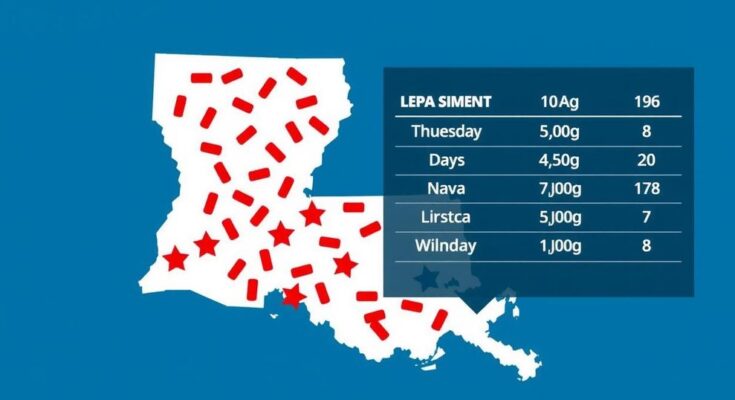Louisiana Amendment 3 is on the ballot in 2024, seeking to allow legislative sessions to be extended by up to six days for budget approval, requiring a two-thirds majority. As of now, votes remain unreported, with polls closing at 9 p.m. Eastern Time.
The Louisiana Amendment 3, which is currently under consideration in the 2024 elections, proposes to grant state legislators the power to extend their regular session by a maximum of six days should additional time be required to finalize the state budget. The amendment stipulates that any such extension must be approved through a two-thirds majority vote in the legislature. As of now, no votes have been reported, suggesting that official tallies are yet to be finalized.
As the polls are set to close at 9 p.m. Eastern Time, all eyes are on the potential implications of Amendment 3 for future legislative processes in Louisiana. Should voters approve this amendment, it could lead to a more flexible legislative timeline, thereby allowing lawmakers adequate opportunity to align state funding priorities with budgetary constraints. This flexibility is deemed essential amidst changing fiscal conditions where budget complexities may arise.
The Louisiana Legislative process includes regular sessions where lawmakers convene to address various bills, including the state budget. Historically, these sessions have defined periods, with the possibility of complications arising that necessitate additional legislative time. Amendment 3 aims to address this potential gap by allowing extensions, thus ensuring that budget negotiations are conducted comprehensively. The necessity for such an amendment reflects ongoing challenges faced by state legislators in managing fiscal responsibilities effectively, illustrating the dynamic nature of budgetary governance in Louisiana.
In summary, Louisiana’s Amendment 3 seeks to empower lawmakers with the option of extending their sessions to ensure thorough budget discussions. As the election results are pending, the potential approval of this amendment may significantly alter the legislative landscape, permitting greater adaptability during critical budgeting periods. This change could prove to be pivotal in enhancing the fiscal management practices of the state, depending on voter response in the upcoming election.
Original Source: www.nytimes.com




